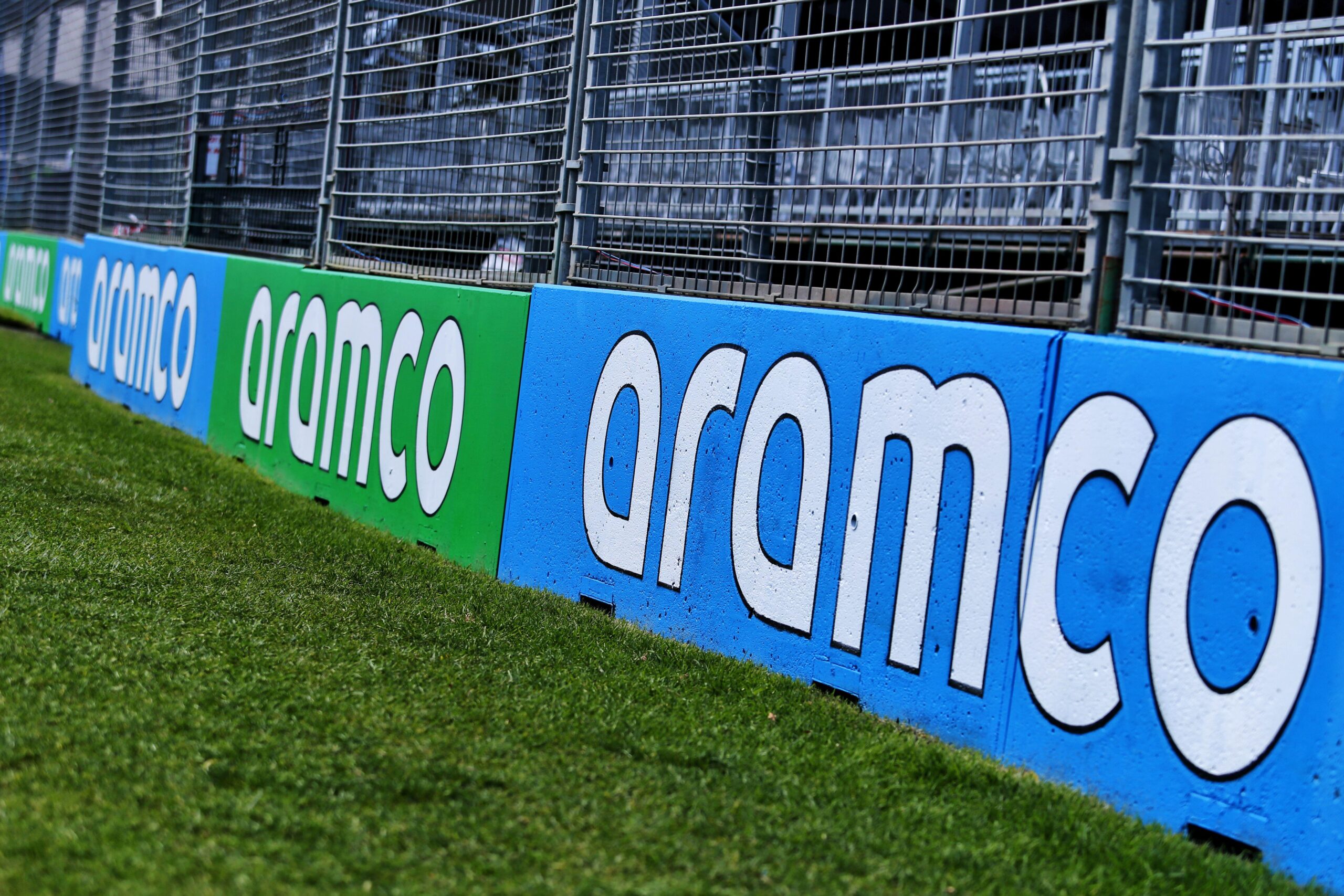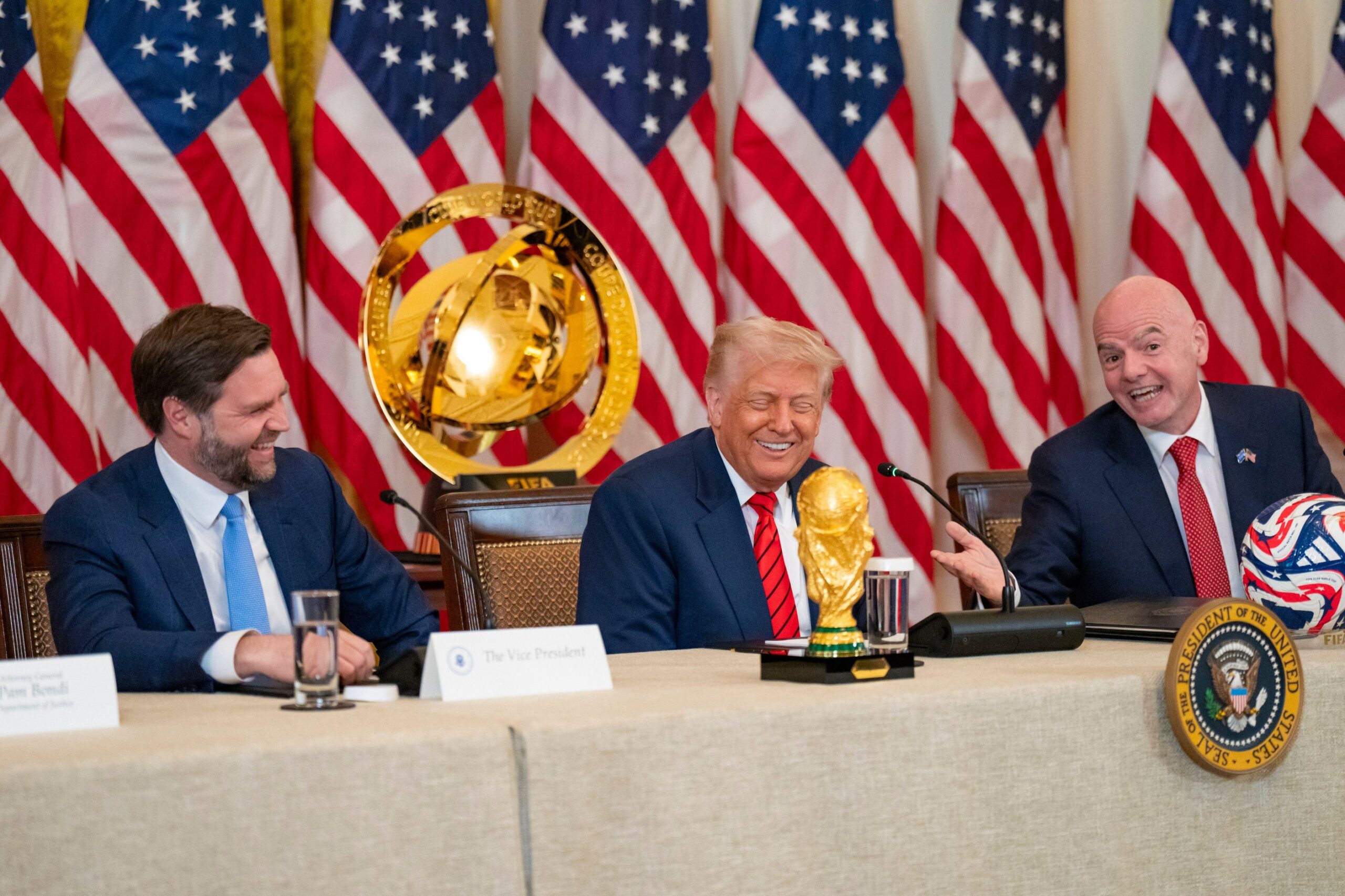
Six of the world’s biggest sports organisations, including FIFA, the International Cricket Council (ICC) and Formula 1, have been challenged to justify their sponsorship deals with state-owned Saudi Aramco following concerns that such partnerships may place them in breach of international human rights standards.
In letters sent this month, a coalition of ten human rights and climate organisations – including Human Rights Watch and Saudi organisations ALQST and ESOHR, supported by a number of professional athletes – expressed “grave concerns” that Aramco’s sponsorships risk undermining human rights law, global climate goals and the sports’ own sustainability commitments.
The letters follow a 2023 communication from the United Nations to 12 financial institutions and 5 world governments, cautioning that working with Aramco could contravene international human rights law and standards. Sent on Monday 15th September, the letters to FIFA, the ICC, Formula 1, Concacaf, Aston Martin and ASO (the organisers of the Dakar Rally) sought responses within two weeks. No responses were received.
Each sports organisation has been asked to respond to questions including whether they:
- Took, or plans to take, any action with Aramco in relation with the 2023 UN communication that raised concerns about the company undermining the Paris climate agreement.
- Have any process to review, and potentially end, their sponsorship agreement with Aramco if it is causing negative human rights or climate impacts.
Aramco is the world’s largest state-owned oil company and has a history of lobbying to delay climate action. Its latest annual report makes clear its intent to expand oil production, stating: “Aramco intends to maintain its position as the world’s largest crude oil company by production volume” and last year Aramco’s CEO said that “we should abandon the fantasy of phasing out oil and gas”.
In the face of strong support for climate action worldwide, Aramco has invested heavily in reputation management – spending nearly $200 million on buying advertising space through its marketing partner IPG between 2021 and 2023, according to an internal briefing document from the firm. Critics identify its sports sponsorship portfolio as part of the same effort to protect its position as the world’s largest oil and gas company. Aramco has increased its global sponsorship portfolio to over $1.3 billion across over 900 deals. This week alone the Singapore Grand Prix and Women’s Cricket World Cup will both see Aramco as a lead sponsor. Over the next two years Aramco’s brand will be given global top-billing as the “Major Worldwide Partner” for the 2026 and 2027 FIFA World Cups, as well as sponsor for the 2026 T20 World Cup in India and Sri Lanka.
With the burning of fossil fuels accounting for 80% of carbon emissions, the letters express “grave concerns” about the sports bodies’ partnerships with Aramco, particularly in light of their own commitments to combating climate change. Signatories argue that by directly platforming fossil fuel companies through sponsorship agreements, sports bodies risk:
- Undermining the Paris Agreement and enabling human rights harms caused by climate breakdown.
- Threatening the sustainability of their own sports, including football and cricket which are already under pressure from rising global temperatures.
- Lending legitimacy to Aramco’s greenwashing, climate obstructionism and human rights record.
Each of the organisations contacted have made commitments regarding sustainability, with FIFA’s Gianni Infantino identifying climate change as “one of the most pressing challenges of our time” and F1 President Stefano Domenicali claiming that “sustainability is one of the most important factors to us not only as a sport, but as a business”. As signatories of the UN’s Sport for Climate Action Framework (which commits signatories to halving their emissions by 2030), FIFA and Formula 1 are expected to face scrutiny on this issue at the upcoming United Nations Framework Convention on Climate Change (UNFCCC) AGM in London on 6 October.
“While world-leading UN human rights experts have been raising the alarm about the impact of Aramco’s activities on the planet and humans, sports organisations like FIFA, Formula 1 and the ICC are happily taking the company’s money, disregarding not only their much vaunted social responsibility statements but also the future of the sports themselves,” said James Lynch of FairSquare, a human rights organisation with a focus on accountability in sport.
“FIFA and other sports bodies cannot claim to champion human rights or sustainability while they sell their platform to a big polluter – especially when that polluter uses our favourite sports to promote fossil fuels and stop the climate action we all need”, ” added Frank Huisingh of Fossil Free Football, an organisation of football fans focused on climate action.
State-owned Aramco’s sponsorship of sports bodies has helped to build Saudi Arabia’s soft power and cement its influence in global sport. In October 2023, before any bidding process had taken place, Gianni Infantino announced on his Instagram account that the 2034 men’s World Cup would be held in Saudi Arabia. Two weeks later, it was reported that Aramco was set to become FIFA’s biggest-paying sponsor, a deal that was confirmed in April 2024. In December 2024, the World Cup was formally awarded to Saudi Arabia after a process to assess human rights risks that was dubbed a “sham” by NGOs. These concerns were brought into sharp relief in March this year, when a migrant worker from Pakistan was killed after falling from a height while working on the construction of Aramco Stadium in Al-Khobar. Investigations had previously found Aramco stadium workers living in squalid conditions and working in 45 degree heat to pay off debts they had taken on to fund their recruitment.
Aramco is also a critical source of finance for Saudi Arabia’s Public Investment Fund (PIF). Research by Human Rights Watch has identified PIF facilitation of serious human rights violations linked to Saudi Arabia’s crown prince, Mohammad bin Salman, such as the 2018 murder of Saudi journalist Jamal Khashoggi, killed seven years ago today.
“Saudi Aramco provides a critical source of revenue for Mohamed bin Salman’s highly repressive state, which Saudi citizens have little or no ability to hold accountable. Sports bodies that give Aramco a global audience are helping to strengthen the country’s harsh autocratic system, where criticism of the government is punishable by prison, and a journalist was executed earlier this year”, said Maryam Aldossari, ALQST board member and senior lecturer at Royal Holloway, University of London.
This latest intervention follows criticism from 135 professional players – with a combined 2,700 international caps – who’ve called on FIFA to drop Aramco as a partner. Signatories included Dutch striker Vivianne Miedema, Canadian captain Jessie Fleming, Italian captain Elena Linari, and England Lioness Niamh Charles, who were supported by a further 36 male players earlier this year.
Sofie Junge Pedersen, Danish international with 88 caps said: “The choice to partner with Aramco helps the Saudi regime distract from its harmful treatment of women and the planet. When we wrote to FIFA last year, as players we were saying that we will not be part of distracting from these violations. Values are not just words to write on a page – you need to live them and stand by them. FIFA needs to stand by its set of values on human rights and sustainability, which they are not doing with this sponsorship.”
Tessel Middag, Dutch international with 44 caps said: “In our criticism of Aramco’s sponsorship we stand alongside women like Saudi fitness instructor Manahel al-Otaibi, who was sentenced to 11 years in prison simply for advocating for women’s rights. FIFA claims they’re committed to women’s rights, but over 100 professional female players asked FIFA three very simple questions last year and received no response. The fact that FIFA ignored the concerns of these women shows a lack of consideration for female players, and suggests that they had no good answers.”
Katie Rood, Kiwi international with 15 caps said: “The leaders of sports like FIFA and Formula 1 claim that they care about the planet, but it’s impossible to reconcile these commitments with taking money from the largest oil and gas company in the world. Saudi’s oil-won wealth allows it to buy big spectacles and bankroll huge sporting moments. But no sport is worth turning a blind eye to human rights violations.”
About the organisations
FairSquare is a non-profit organisation established in 2019, specialising in labour migration, political repression, and sport. Their work on accountability in sport is informed by years of research and advocacy on abuses connected to the Qatar 2022 World Cup, and the role of FIFA. They have warned that construction linked to the 2034 World Cup and other major projects in Saudi Arabia will in all likelihood lead to thousands of unexplained deaths of migrant workers. They’ve taken a strong stance against state ownership of English football clubs, and explored the political implications of such projects. They have called on FIFA and UEFA to take action with regard to the Israel Football Association’s holding of matches in occupied Palestinian territory, and warned that FIFA “risks becoming a “public relations tool” for the Trump administration.
ALQST for Human Rights is a London-based, independent NGO established in 2014 by Saudi human rights defender Yahya Assiri for the purpose of defending and promoting human rights in Saudi Arabia. They conduct on-the-ground research, engage in international legal and public advocacy, and campaign on behalf of victims of human rights abuses.
Badvertising campaigns to stop adverts and sponsorships fuelling the climate emergency. Their Sweat Not Oil set out why sports should drop sponsorship from car, airline and fossil fuel companies, and this summer they launched a Fossil Free Declaration which commits signatories to reject and phase out sponsorships with high-carbon sponsors.
European Saudi Organisation for Human Rights (ESOHR) is a nonprofit organisation aimed at strengthening the commitment to human rights principles in Saudi Arabia. They document and monitor human rights violations, work alongside human rights organisations and civil societies, issue human rights reports and support victims of violations within their capabilities and capacity.
Fossil Free Football is an organisation of football fans which campaigns for climate action in football. Their work calls for clubs to step away from polluting sponsors and advocates for regulation in the sector. In June this year they supported over thirty male professional players in their letter calling for FIFA to drop Aramco’s sponsorship.
Middle East Democracy Center (MEDC) is a U.S.-based nonprofit and nonpartisan advocacy organization that works with the people of the Middle East and North Africa to free the unjustly detained and advocate for U.S. policies that protect human rights and democracy.
MENA Rights Group is a Geneva-based legal advocacy NGO founded in 2018 to defend and promote fundamental rights and freedoms in the Middle East and North Africa region. MENA works directly with victims, their families, lawyers, human rights defenders and other civil society actors, supporting them to claim their universally recognised rights and freedoms.
The Green Runners is a community of professional runners founded in 2022 to make changes for a fitter planet. Their members including ultrarunners Damian Hall, Dan Lawson and Jasmin Paris, who last year became the first woman to successfully complete the Barkley Marathons. In 2023 they led a campaign calling out the biggest race in the trail running world – Ultra-Trail du Mont Blanc (UTMB) – for accepting sponsorship from car manufacturer Dacia.
The Next Test is a non-profit organisation working to connect cricket, climate action and sustainability. In July this year they co-produced Hit for Six: the danger zone, revealing the mounting pressure cricket faces from rising temperatures, with nearly half of this year’s IPL matches played in heat conditions classified as ‘Extreme Caution’ or ‘Danger.’


